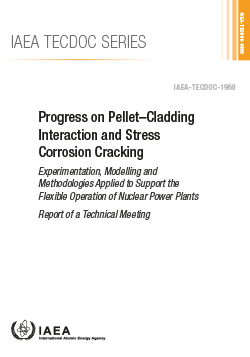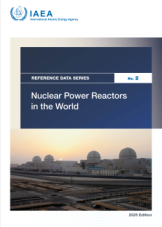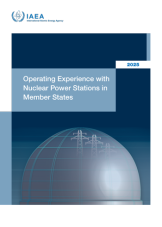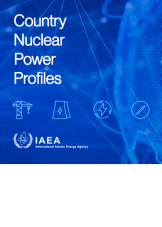Progress on Pellet–Cladding Interaction and Stress Corrosion Cracking
IAEA-TECDOC-1960
ISBN
978-92-0-116521-3
312 pages | 13 figures | € 18.00 | Date published: 2021
Flexible operation and related power changes can have a direct impact on fuel integrity through pellet–cladding interaction/stress corrosion cracking (PCI/SCC) phenomena, which could lead to fuel failures in certain conditions. For some anticipated operational occurrences that affect fuel with small PCI/SCC margins, the fuel failures caused by PCI/SCC cannot be assumed to be benign, and a significant radiological source term may be generated. This publication provides an overview of PCI/SCC studies and reports on the progress made since the early 2000s, based on presentations and discussions at a related IAEA technical meeting held in October 2019.
Keywords:
Pellet-Cladding, Interaction, Stress, Corrosion, Cracking, Technical Meeting, Experimentation, Modelling, Methodologies, Flexible, Operation, NPP, Nuclear Power Plant, PCI, Pellet-Cladding Interaction, SCC, Stress Corrosion Cracking, Fuel Failure, Radiological Source, PCI-SCC, Reactor Core, Design, Implementation, Optimization, Operating Condition, Design Methodology, Cladding Failure, Corrosive Environment, Flexible Power, Licensing, Reactor Operation, Simulation, Model, Design Verification, Verification, Validation



